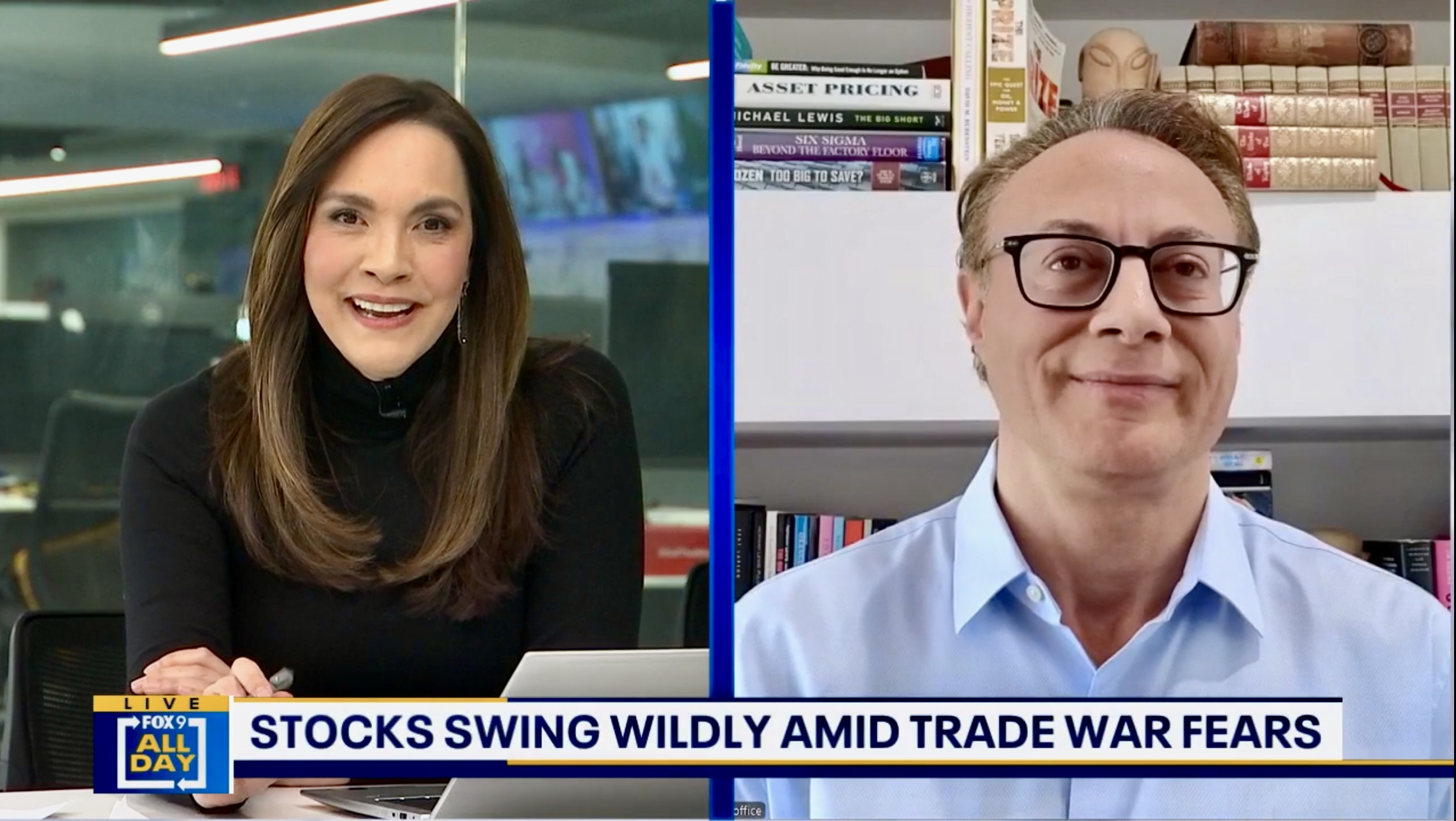Thoughts on forex markets
Running Point and its chief investment officer, Michael Ashley Schulman, CFA, were quoted by Forex Founder in an article/roundtable interview — by Christopher Hamman, “What Factors Affect The Forex Markets the Most?” — regarding innovation, volatility, war, economics, market manipulation, weather, commodities, politics, central banks, and other factors that govern the foreign exchange (forex) and currency markets. All these factors operate simultaneously and interact with each other in complex ways often leading to surprised market participants.
Quoted article excerpt/interview is below:
Michael Ashely Schulman, CFA Founding Partner and Chief Investment Officer (CIO) at Running Point Capital Advisors
“Multiple factors affect the forex markets and their impact varies depending on the specific currency pair, the current economic and political climate, and future expectations. Some of the most important factors that can affect forex markets include economic indicators, central bank policies, political events, market sentiment and expectations, and wars, natural disasters, and other unforeseen events. It’s critical to note that these factors do not operate in isolation and often interact with each other in complex ways, which can lead to unexpected market movements. Forex traders and investors should keenly follow socioeconomic and political developments and be prepared to adjust their trading strategies accordingly.
“Economic data such as GDP, inflation, employment figures, interest rates, economic growth, and trade balance can have a significant impact on currency values. If economic data is better than expected, traders may become more optimistic about the economy, which can lead to an increase in demand for the currency. Conversely, if economic data is worse than expected, traders may become more pessimistic about the economy, leading to a decrease in demand for the currency. Additionally, economic data releases can cause significant volatility in forex markets, as traders adjust their positions based on the new information; this volatility can provide opportunities for traders to profit, but it can also increase risk, particularly if the data release is unexpected or significantly different from market expectations.
“Central banks play a key role in shaping currency values through monetary policy decisions such as interest rate changes, quantitative easing, and other policy measures. For example, if a country’s central bank raises interest rates, this could make the currency more attractive to investors, which can lead to an increase in its value. However, if the increase in interest rates is unexpected or seen as excessive, it can have the opposite effect. Higher interest rates can make borrowing more expensive and slow down economic growth; in turn, this can lead to a decrease in demand for the currency as investors anticipate slower growth and potentially lower investment returns. Overall, the impact of an increase in interest rates on a currency will depend on a variety of factors, including the economic and political climate, market sentiment, and the actions of other central banks. Additionally, changes in defensive policies or overnight currency devaluations or will have harsh and immediate effects on valuation! For example, on June 16, 2022, the Swiss franc soared against the U.S. dollar and the euro after the Swiss National Bank surprised with an interest rate hike.
“Political and geopolitical developments such as elections, tensions, and changes in government policies cause currency values to fluctuate. Political and geopolitical events can lead to changes in risk sentiment, as investors react to uncertainty and potential risks. If a political event is seen as negative or has the potential to disrupt socioeconomic stability, investors may become more risk-averse, leading to a decrease in currency demand. Conversely, if a political event is seen as positive or has the potential to promote economic stability, investors may become more risk-tolerant, leading to an increase in currency demand. Political and geopolitical events can also influence trade and capital flows, which can impact currency values. For example, if a political event leads to increased protectionism or trade barriers, it can decrease demand for the currency, as trade and capital flows are restricted; conversely, if a political event leads to increased trade or investment opportunities, it can increase demand. Political and geopolitical events can also lead to increased demand for perceived safe-haven currencies, such as the US dollar, Swiss franc, Japanese yen, Bitcoin, and gold as investors seek to reduce their risk exposure.
“Additionally, changes in regulations and government policies related to how currencies are owned, held, or accessed will impact their value; positive developments, such as regulatory clarity and supportive policies, can increase demand and prices, while negative developments, such as bans or restrictions, can decrease demand and prices.
“The overall mood and perception of market participants can influence currency values, as traders often respond to news and events based on their expectations of future market movements. Market sentiment can influence risk appetite, as traders become more or less willing to take on risk. If market sentiment is positive, traders may become more risk-tolerant, leading to an increase in demand for higher-yielding currencies. Conversely, if market sentiment is negative, traders may become more risk-averse, leading to an increase in demand for safe-haven currencies, gold, or crypto. Market sentiment can also influence market trends and trading strategies, as traders respond to the prevailing mood, thus creating self-fulfilling momentum trades.
“Currencies can also be vulnerable to market manipulation. Large investors or groups can influence prices through coordinated buying or selling, which can cause significant price movements, as in Britain, on Black Wednesday, September 16, 1992, when George Soros and other speculators shorted the currency and ‘broke the pound.’
“Unpredictable events such as natural disasters, terrorist attacks, wars, and pandemics can cause significant disruptions to global markets and currency values. Climate change and agricultural developments can impact commodity prices, which can in turn influence currencies. For example, if there is a drought or other natural disaster that affects crop production, it can lead to a decrease in supply and an increase in prices for agricultural commodities; this in turn can have two affects, 1) If there is a decrease in crop production or an increase in import demand for agricultural commodities, it can lead to a decrease in the trade balance for the exporting country, which can lead to a decrease in demand for that currency; and 2) It can in-turn increase demand for the currency of a country that produces or exports that commodity. Agricultural developments can also impact central bank policy decisions, particularly with respect to inflation. If there is a significant increase in agricultural commodity prices, it can lead to higher inflation, which can prompt central banks to raise interest rates; this can increase demand for the currency, as investors seek higher returns.”

It is not the strongest or the most intelligent who will survive but those who can best manage change.
Charles Darwin
Disclosure: The opinions expressed are those of Running Point Capital Advisors, LLC (Running Point) and are subject to change without notice. The opinions referenced are as of the date of publication, may be modified due to changes in the market or economic conditions, and may not necessarily come to pass. Past performance is not indicative of future results. Forward-looking statements cannot be guaranteed. Running Point is an investment adviser registered with the U.S. Securities and Exchange Commission. Registration does not imply a certain level of skill or training. More information about Running Point’s investment advisory services and fees can be found in its Form ADV Part 2, which is available upon request. RP-23-44


